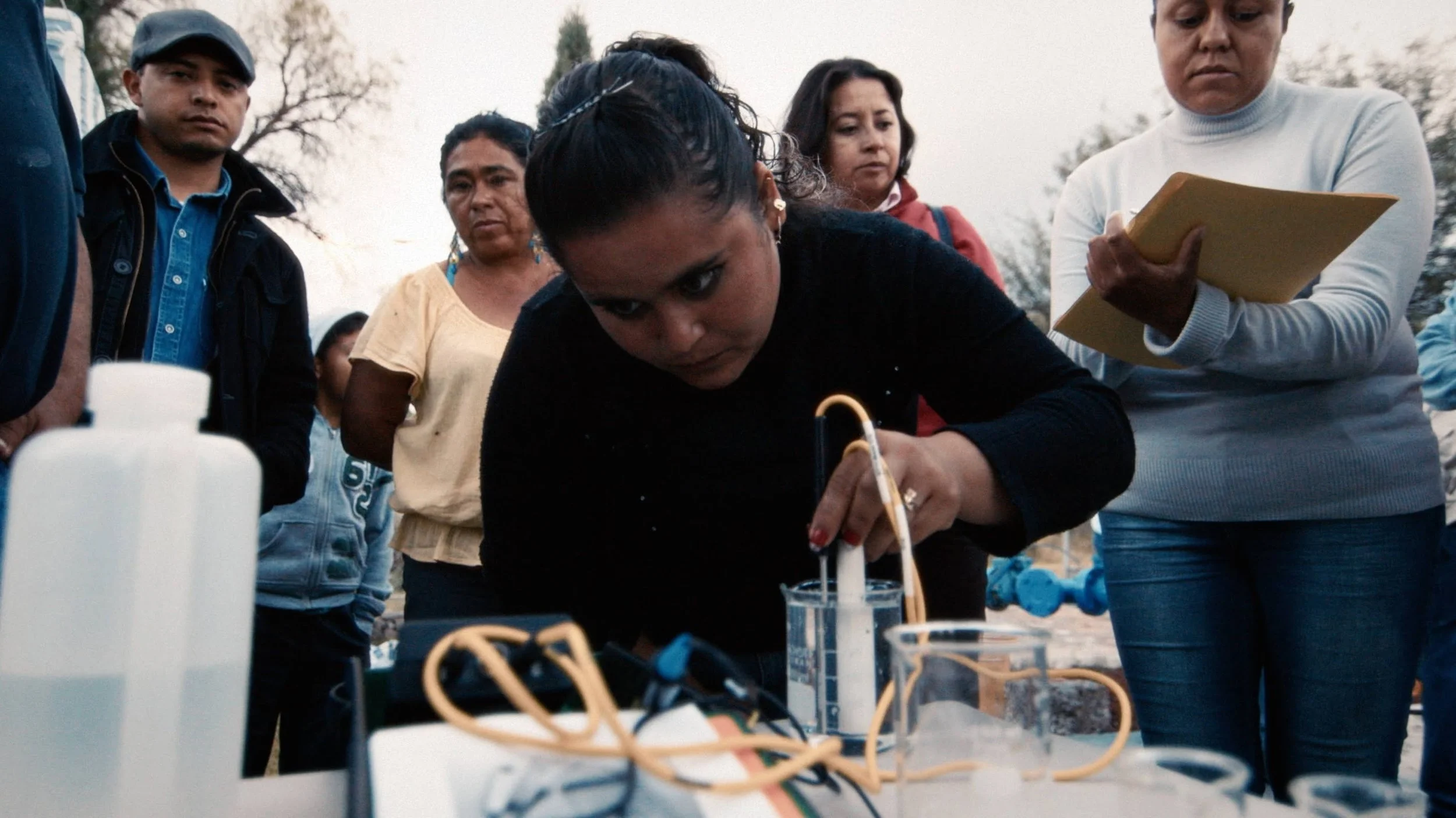POV, the multi-Emmy and Peabody Award-winning documentary, presents The Age of Water, the revealing debut feature from sibling co-directors Isabel Alcántara Atalaya and Emmy-winning producer and cinematographerAlfredo Alcántara. Produced by acclaimed Emmy-nominated filmmakers Michèle Stephenson and Joe Brewster (American Promise, Going to Mars: The Nikki Giovanni Project, The Changing Same), along with Lindsay Perna, co-produced and co-presented by Latino Public Broadcasting (LPB), the documentary investigates the devastating health and environmental consequences of industrial farming in central Mexico. What unfolds is a story of resilience, conviction, and the lies we tell ourselves about the world’s dwindling natural resources.
After an acclaimed world premiere at the Morelia Film Festival, The Age of Water will have its national broadcast premiere on POV Monday, September 8, 2025, at 10pm (check local listings) on PBS, in recognition of Environmental Awareness Month. It will stream on PBS.org and the PBS App, and the PBS YouTube Channel through December 7, 2025. Now in its 38th season, POV is the longest-running nonfiction series.
Set in La Cantera, a remote town in Guanajuato, Mexico, that has become deeply tied to the global economy since the passing of the North American Free Trade Agreement (NAFTA) in the mid-1990s. The Age of Water follows two mothers, Nely Baeza and Elia Zarazua, whose lives are upended when three children die from an aggressive form of leukemia within a single year. In response, they transform from ordinary citizens into determined activists, form the civil group MAYOYE—named after the initials of their deceased children—and begin investigating the source of the epidemic.
With the support of Dr. Adrián Ortega, a hydrogeologist from Mexico City, they learn to test local wells and uncover a shocking truth: radioactive contamination in the groundwater, levels four times higher than normal, linked to ancient aquifers drained by industrial farms growing water-intensive crops such as strawberries, broccoli, and asparagus for export to the United States. Due to the region's lack of rainwater, the farm's heavy reliance on groundwater is a long-term health risk to residents.
As the mothers of MAYOYE organize, confront officials, stage rallies, and expose environmental racism, they face fierce backlash, community divisions, and government denial, reflecting a broader pattern of repression against environmental defenders across Latin America.
Directors Isabel Alcántara Atalaya and Alfredo Alcántara's multi-year relationship with the film's participants allows for an intimate look into the struggles of hyper-local community organizing in the face of government and corporate denial. In addition to earning the trust of the community organizers, the filmmakers gain surprising access to the office of Humberto Navarro, the cowboy-hat-wearing government appointee who denied the contamination claims.
Despite his open condescension toward the film’s protagonists, his participation in multiple interviews reveals his trajectory as Water Commissioner of the region. The result is a compelling portrait of environmental injustice—and the courage it takes to confront it.
La Cantera's story resonates far beyond Mexico. The Age of Water draws parallels to lowering water tables in California’s Central Valley, Southern Arizona, and the American Midwest. Unchecked corporate practices and global trade agreements have pushed communities around the world to the urgency of the fight for clean, safe water.
"My sister Isabel and I grew up in Mexico, just a few miles from La Cantera, which is the setting of the story. Since we were kids, we’ve seen how industry has ruined so much of the natural environment around our home," said co-director Alfredo Alcántara. “When we met the group of women in the film, we were immediately inspired by their journey to find answers, and we felt a sense of responsibility to share their story. We hope this film is a wake-up call for other communities to safeguard their natural resources before it's too late.
"Having our film broadcast on POV is such an amazing feeling. We grew up watching public television, and we’re now part of a community of really impactful documentaries. We feel so honored to be included. Public television is one of those resources that you can easily take for granted. But when we stop to think about it, it touches every part of our lives. Whether we’re looking to be educated on something new or need to relax at the end of a stressful day, it’s always there when we need it. We hope that access to this extremely valuable resource is available for generations to come."
"Brother and sister directing team Alfredo Alcántara and Isabel Alcántara Atalaya's film, The Age of Water, sheds light on a community’s relationship with our most essential resource," said Chris White, Executive Producer, POV. "We are reminded that access to clean water is not only vital, but a measure of equity, resilience, and survival. Public media is proud to showcase a film that boldly uncovers the injustice around access to clean resources and demands more active environmental stewardship from those who hold power.
"We’re so pleased to be partnering with POV on this important and moving documentary," said Sandie Viquez Pedlow, executive director of Latino Public Broadcasting. "It’s films like this–that take us to a place we’ve never been and tell a remarkable story we otherwise might never know about–that remind us of the extraordinary value of our nation’s public media."





